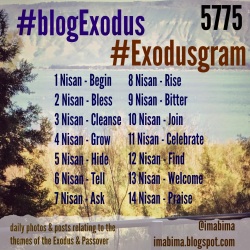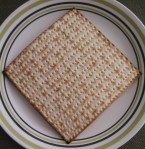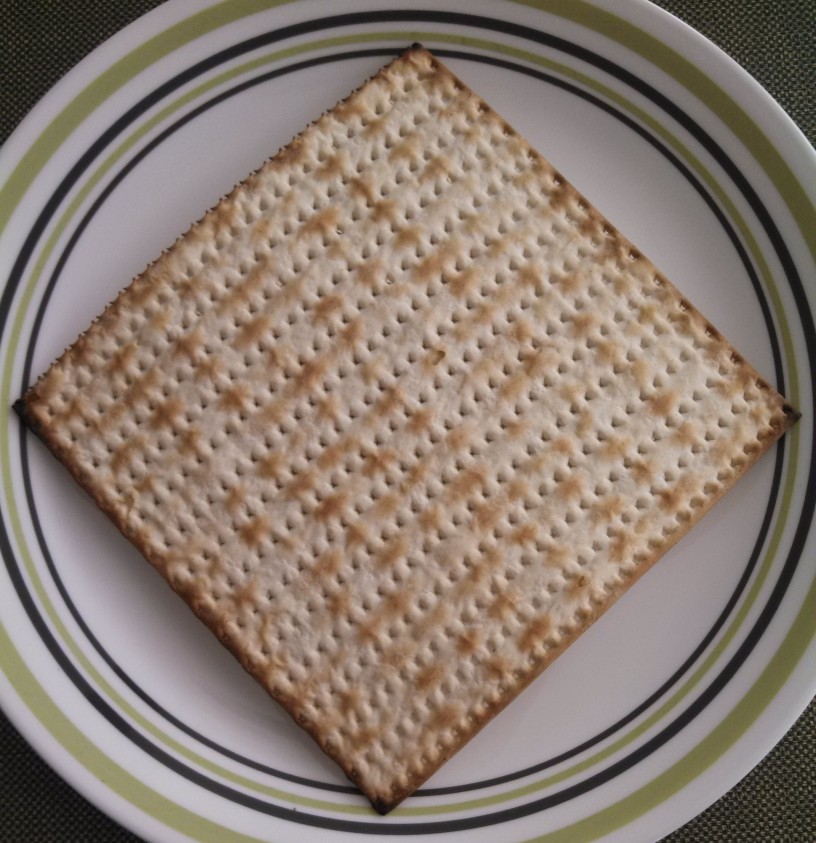 Have I ever told you about the year that that our search for the afikomen (a piece of broken matzah that is hidden during the Passover Seder for kids to find and subsequently ransom, because the ritual meal can’t end until everyone takes a bite of the afikomen) took four months? It is a tale of mystery and intrigue and military movers that spanned 1,400 miles!
Have I ever told you about the year that that our search for the afikomen (a piece of broken matzah that is hidden during the Passover Seder for kids to find and subsequently ransom, because the ritual meal can’t end until everyone takes a bite of the afikomen) took four months? It is a tale of mystery and intrigue and military movers that spanned 1,400 miles!
Back in 2008, when the glitter of Sampson’s newly-awarded Navy Wings of Gold was still a dazzling novelty on his uniform, we were getting ready to ditch South Texas for glamorous Norfolk, Virginia (well, it had to be more glamorous than Kingsville or Corpus Christi). Eager were we to leave behind the grind of flight training for an exciting life of… well, more flight training, but this time in a haze-grey Fleet Replacement Squadron aircraft with wings on one’s chest instead of in the clown-like orange-and-white birds of the training commands wearing a sad, wingless name tag. Before we could start that thrilling new chapter, though, we had to get ourselves and all our worldly possessions from the Gulf Coast to the East Coast.
That meant military movers. When Uncle Sam is picking up the tab, you don’t exactly get to shop around for the best moving company on the block; the government’s primary criterion for its choice of relocation contractors seems to be the price. Our much-anticipated pack-out day, which fell during the middle of Passover, was fraught with a number of issues that one might expect when dealing with the lowest bidder, not the least of which was the driver forgetting to bring the key to the back of the truck so that the boxes and furniture could be loaded.
The wait while someone went to fetch the key would have been no big deal, ordinarily. However, for reasons known only to them, the movers had decided to stage all the boxes and furniture outside on the lawn. That would have been no big deal if thunder hadn’t started rumbling and the clouds hadn’t begun to threaten everything we owned with a thorough watering.
Luckily for us, someone returned with the means to open the truck so that loading could commence, and they managed to get everything safely aboard the truck before the skies opened up and soaked our stuff. Still, that last hour or so of willing the rain not to fall had added even more stress to what is never a relaxing day under the best of circumstances, so we were doubly relieved to see the truck drive off. Exhausted, we went back inside our empty house to grab a snack of matzah we’d stashed with the “Do Not Pack” collection of snacks and drinks we had left on the counter for the packers and movers.
 Though the other snacks remained, the box of matzah — our last one — was nowhere to be seen. We looked through drawers (empty), the fridge (likewise), cabinets (also no joy). “They must have packed it by accident,” said Sampson, shaking his head.
Though the other snacks remained, the box of matzah — our last one — was nowhere to be seen. We looked through drawers (empty), the fridge (likewise), cabinets (also no joy). “They must have packed it by accident,” said Sampson, shaking his head.
And now it was on its way to storage in Virginia until we had a house to which our stuff could be delivered. “This is going to be the longest afikomen hunt ever,” I said, through giggles of disbelief bubbling up from the dregs of a long, long day.
We spent several months bouncing from temporary lodging facility to my parents’ place while Sampson was at SERE school to different temporary lodging facility before we finally closed on our Virginia house and took delivery of our household goods. With every cardboard box we ripped open, we joked, “Is this where they hid the afikomen?”
In the end, I won the prize–the long-lost matzah turned up in a box of miscellaneous kitchen stuff. Matzah being what it is, its apparent condition was indistinguishable from when it had been packed four months prior, but neither of us was particularly inclined to put it to a taste test.
#blogExodus, the brainchild of Rabbi Phyllis Sommer, invites participants to chronicle the weeks leading up to Passover through blog posts, photos, and other social media expressions.









